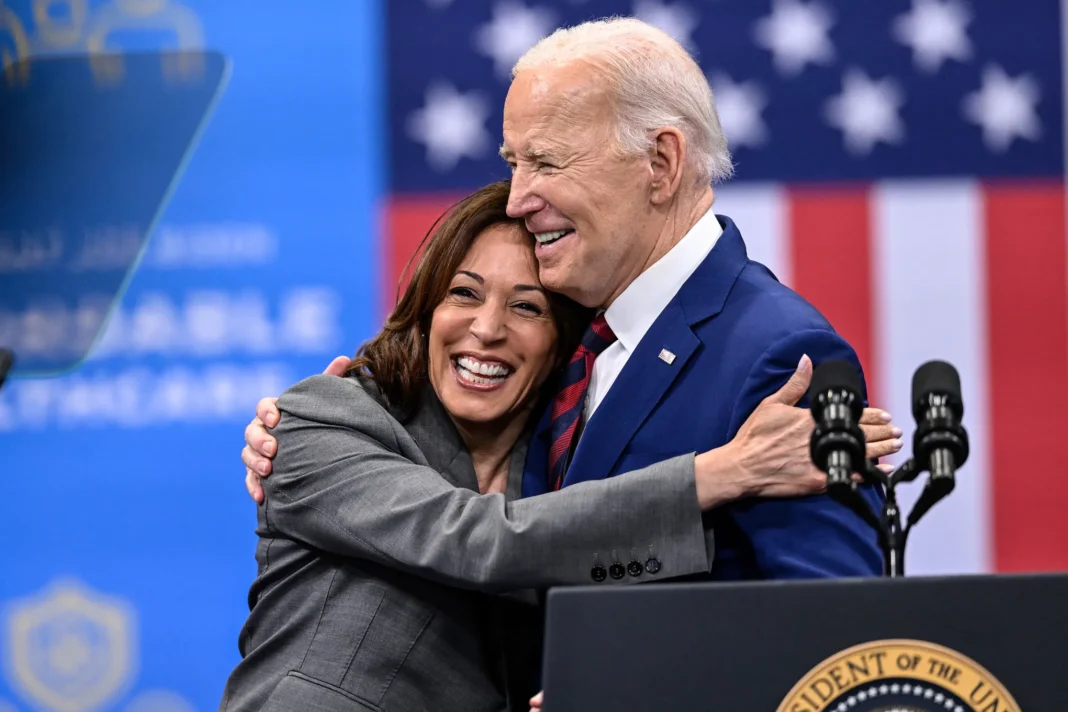In a stunning turn of events that has sent shockwaves through the political landscape, President Joe Biden drops out of presidential race. This unexpected move comes in the wake of a disastrous debate performance that inflamed age concerns and raised serious questions about the 81-year-old president’s fitness for office.
The Announcement That Shook the Nation
On a sunny Sunday afternoon, President Biden took to social media to inform the American public of his decision to end his reelection campaign. In a heartfelt letter, Biden stated, “I believe it is in the best interest of my party and the country for me to stand down and to focus solely on fulfilling my duties as President for the remainder of my term.” This announcement marked the culmination of weeks of intense speculation and growing pressure from within the Democratic Party.
The president’s decision to drop out of the presidential race came as a surprise to many, especially given his repeated public assurances that he intended to seek reelection. However, sources close to the president reveal that the decision had been weighing heavily on his mind in the aftermath of the June 27th debate with former President Donald Trump.
The Debate That Changed Everything
The pivotal moment that set the stage for Biden’s withdrawal was undoubtedly the June 27th debate. What was expected to be a showcase of Biden’s experience and leadership instead became a stark illustration of his perceived decline. Throughout the 90-minute event, the president appeared visibly fatigued, often struggling to articulate his thoughts clearly and stumbling over key policy points.
The debate performance immediately sparked concerns among Democrats and political analysts alike. CNN panelists, in a rare display of bipartisan agreement, suggested that the president should consider ending his campaign. The calls for Biden to step aside quickly escalated, with numerous elected officials and pundits joining the chorus.
Perhaps most damaging was the reaction from the donor class. Several high-profile Democratic donors vowed to withhold further contributions to the Biden campaign, with some going so far as to refuse funding any Democratic candidates until the president stepped aside.
Joe Biden Drops Out of Race: The Aftermath of Biden Withdrawing from Presidential Race and Internal Party Struggles
In the weeks following the debate, the Biden campaign found itself in crisis mode. The president and his most ardent supporters attempted to downplay the significance of the debate performance, attributing it to a combination of illness and jet lag. However, these explanations did little to quell the growing concerns within the party.
Reports began to surface suggesting that Biden’s debate performance was not an isolated incident. Sources within the White House spoke of increasing frequency and severity of episodes where the president struggled both in private meetings and public appearances. These revelations led to accusations that Biden’s inner circle had been covering up the extent of his decline.
The impact of these developments was quickly reflected in the polls. While national surveys showed only a modest increase in support for Trump, leaked internal polling painted a dire picture in key swing states crucial for electoral victory.
The Path Forward: Kamala Harris and the Democratic Party’s Next Steps
With Biden’s withdrawal, attention has immediately shifted to Vice President Kamala Harris. In his announcement, Biden offered a full-throated endorsement of Harris as his preferred successor, stating, “My very first decision as the party nominee in 2020 was to pick Kamala Harris as my Vice President. And it’s been the best decision I’ve made. Today I want to offer my full support and endorsement for Kamala to be the nominee of our party this year.”
Harris, for her part, expressed gratitude for Biden’s endorsement and outlined her vision for the campaign ahead. “I am honored to have the President’s endorsement and my intention is to earn and win this nomination,” Harris said. “I will do everything in my power to unite the Democratic Party—and unite our nation—to defeat Donald Trump and his extreme Project 2025 agenda.”
Democratic National Committee Chair Jaime Harrison assured the public that the party would move forward with a “transparent and orderly process” to select a new presidential nominee. “The work that we must do now, while unprecedented, is clear,” Harrison said. “In the coming days, the Party will undertake a transparent and orderly process to move forward as a united Democratic Party with a candidate who can defeat Donald Trump in November.”
Multiple Democratic leaders have come out and have fully endorsed Harris:
South Carolina Congressman Jim Clyburn: “I’ve had the honor and privilege of calling (President) Joe Biden a friend for many years. When I endorsed then-candidate Biden in 2020, I noted how I could think of no one with the integrity and no one more committed to the fundamental principles that form the foundation of our great country than him. He has used those principles to bring the American people together through incredible trials and unfamiliar terrain.
“He’s pursued an agenda that addresses the inequities in our health care system, the unaffordability of higher education, our outdated roads and bridges, the gun violence epidemic, access to affordable high-speed broadband, and so much more. President Biden has improved the lives of countless Americans through his selfless service, and I thank him for his unparagoned leadership.
“One of President Biden’s first decisions as the nominee was to select a running mate that he believed possessed the values and vision necessary to continue this country’s pursuit toward a ‘more perfect Union.’ I echo the good judgment he demonstrated in selecting Vice President Harris to lead this nation alongside him, and I am proud to follow his lead in support of her candidacy to succeed him as the Democratic Party’s 2024 nominee for President.”
Bill and Hillary Clinton: “We are honored to join the President in endorsing Vice President Harris and will do whatever we can to support her,” the Clintons said on X. “Now is the time to support Kamala Harris and fight with everything we’ve got to elect her.”
“I am excited to endorse @KamalaHarris for President, and give her my full support,” Democratic Rep Adam Schiff wrote in on X.
“This was the president’s decision to make and I’m grateful for his years of service to our country,” Rep Ilhan Omar, a progressive Democrat from Minnesota, stated. “Thrilled to support @KamalaHarris as our Democratic nominee and remain committed to working alongside her to defeat Donald Trump in November.”
“We Democrats will be unified and focused behind our next President, Kamala Harris, to keep their great success going and to defeat the autocrats, theocrats and plutocrats,” Jamie Raskin said.
Rep. Robert Garcia of California: “When she withdrew we got behind Joe Biden. Now we are going to support them both by electing her President.”
The Republican Response and the Road to November
The Republican response to Biden’s withdrawal has been mixed. While some, like independent candidate Robert F. Kennedy Jr., commended Biden for his decision, others saw it as an opportunity to attack the Democratic Party as a whole.
Former President Trump, who narrowly survived an assassination attempt earlier this month, has remained uncharacteristically quiet on the matter. However, his campaign released a statement saying, “Joe Biden’s decision to drop out of the race is a clear admission that the Democrats know they can’t beat President Trump in November. The American people are ready for strong leadership and a return to the prosperity and security they enjoyed under the Trump administration.”
As the dust settles on this unprecedented turn of events, both parties are recalibrating their strategies for the upcoming election. For Democrats, the challenge will be to rally behind a new nominee and present a united front against Trump. For Republicans, the focus will likely shift to attacking Harris and attempting to paint her as a continuation of what they see as Biden’s failed policies.
With less than four months until Election Day, the 2024 presidential race has been thrown into chaos. As the nation grapples with this seismic shift in the political landscape, one thing is certain: the coming weeks and months will be crucial in shaping the future of American democracy.




